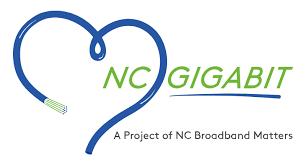How Telecom Monopolies Killed Competition in North Carolina With HB 129, Part 2 - Community Broadband Bits Podcast, Bonus Episode Eight

For the eighth episode of our special podcast series “Why NC Broadband Matters,” Christopher and his guests, Catharine Rice and Jack Cozort, continue their conversation on HB 129, North Carolina’s restrictive law that prevents local governments from investing in broadband infrastructure. The first half of their discussion focused on the years leading up to the passage of HB 129 in 2011. Today, Christopher, Catharine, and Jack talk about the bill itself, the influence of the telecom industry over the state legislature, and how HB 129 has impacted connectivity in North Carolina.
Catharine and Jack explain that local broadband authority became a partisan issue after the 2010 election, which flipped control of the North Carolina legislature to the Republicans. They share their experiences advocating against HB 129, explaining how legislators restricted public comments on the bill by limiting speaking time and rescheduling hearings and meetings. Jack tells Christopher that there were as many as 25 lobbyists representing telephone and cable companies at the state legislature pushing for HB 129. Catharine relates how corruption and a lack of transparency in government are the reasons why the telecom industry successfully got the bill passed.
Christopher and his guests also run through some of the provisions of HB 129, dissecting the telecom monopolies’ misleading arguments in favor of the bill.
This is the second half of a two part discussion. For part one, listen to episode 412 of the Community Broadband Bits podcast.

We produced this episode and the “Why NC Broadband Matters” series in partnership with NC Broadband Matters, a nonprofit organization advocating for better connectivity across North Carolina.
This show is 32 minutes long and can be played on this page or via Apple Podcasts or the tool of your choice using this feed, at the Community Broadband Bits page, or at the NC Broadband Matters page. We encourage you to check out other "Why NC Broadband Matters" content at the podcast feed so you don't miss future bonus content that may not appear in the Community Broadband Bits Podcast feed.
Transcript below.
We want your feedback and suggestions for the show-please e-mail us or leave a comment below.
Listen to other episodes here or view all episodes in our index. See other podcasts from the Institute for Local Self-Reliance here.
Thanks to Shane Ivers for the Music: What's The Angle? by Shane Ivers - https://www.silvermansound.com a Creative Commons Attribution (4.0) license.


